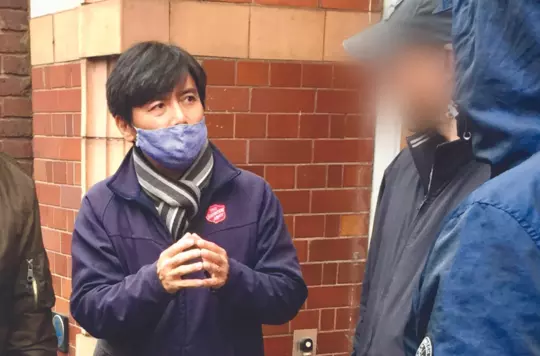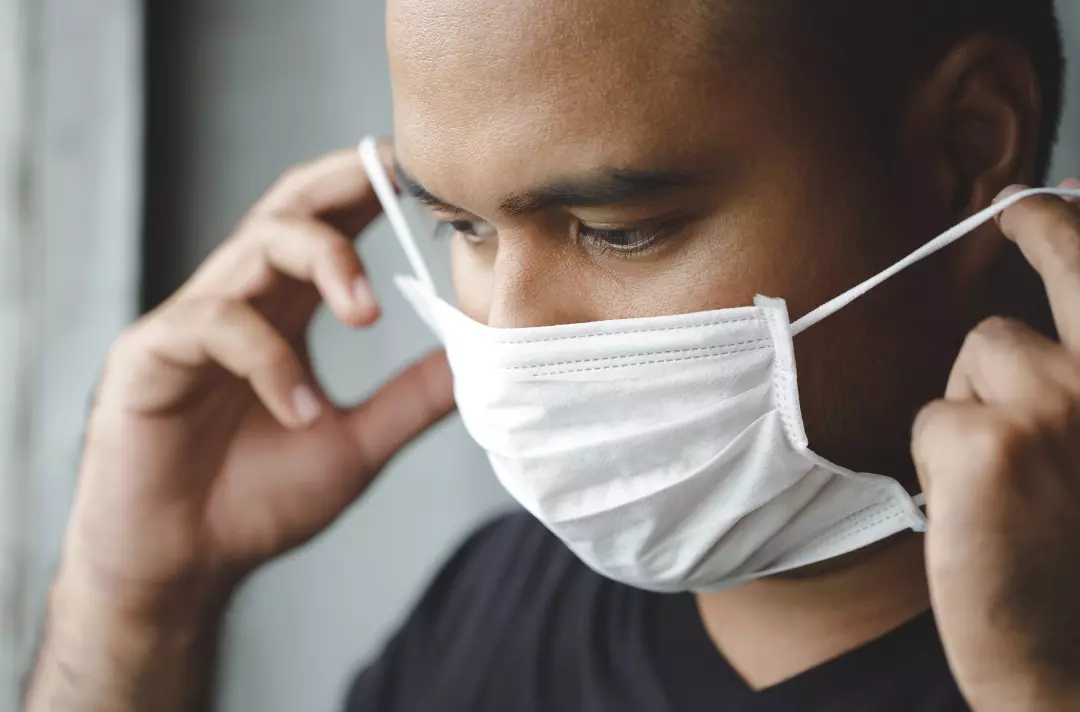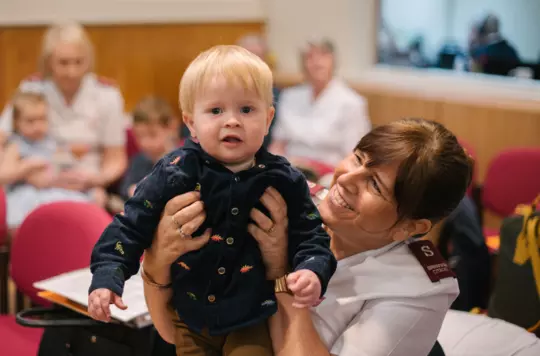20 July 2022
Processing the pandemic: A trauma-informed approach to pastoral care
Amy Quinn-Graham

Amy Quinn-Graham continues a series of articles in which Research and Development personnel reflect on how our approach to mission has been affected by the Covid-19 pandemic.
This series explores themes that emerged from research carried out by THQ’s Research and Development Unit on Covid-19 and its impact on The Salvation Army’s mission now and in the future. The first article focused on Covid-19 as a spur to prayer and lament. This week we consider the idea of Covid-19 as trauma.
As with lament, some people may think focusing on the trauma of the pandemic is counterintuitive when considering moving forward. However, if Covid-19 is not recognised as trauma, individuals, families and even groups risk experiencing re-traumatisation as their experiences of Covid-19 trigger memories from other life events.
If left unresolved, trauma can be passed down through generations. Trauma can develop into long-term mental health disorders, such as depression and anxiety. Trauma can also lead to individuals losing their faith in God, if they feel that he is absent during times of disaster.
Research suggests that Covid-19 will have been a traumatic experience for many.
In an article in the Journal of Traumatic Stress, BA van der Kolk and R Fisler suggest that trauma can be understood as ‘an inescapably stressful event that overwhelms people’s existing coping mechanisms’. The Salvation Army’s Addiction Services describe how ‘reactions to traumatic events vary considerably, ranging from relatively mild, creating minor disruptions in a person’s life, to severe and debilitating’. An event such as Covid-19 will have been experienced differently by different people, and the level of impact experienced may not be immediately obvious.
Trauma is present in Scripture. Therefore, acknowledging trauma and supporting each other to process it are important to God.
At the height of the pandemic, parallels were drawn between lockdown and the experience of the Israelites who were living in Babylonian exile. Perhaps like many of us, the Israelites experienced a loss of rituals and ways of approaching and connecting with God that could have overwhelmed their coping mechanisms and left them feeling that their life and stability were threatened. When we couldn’t meet for in-person worship we may have found ourselves asking: ‘How can we sing the songs of the Lord while in a foreign land?’ (Psalm 137:4).
Critically, these rituals may never have returned to the way they once were. Even if we’ve found new ways of ‘doing church’, there may still be sadness about how things were, an unwelcome memory resurfacing when visiting another corps or a reminder of someone who passed away from Covid-19 when a certain prayer or song is used in worship.
Addressing trauma
Whether we want to explore the traumatic impact of Covid-19 as an individual or as a corps, adopting a trauma-informed approach is an important first step.
A corps officer or anyone else who provides pastoral support or leadership is not expected to take the place of a trained clinician equipped to deliver individual interventions. Instead, adopting a trauma-informed approach means carefully considering our interactions with others.
A trauma-informed approach requires a shift from asking ‘What is wrong with this person?’ to ‘What has happened to this person?’ That is seen in the territory’s Core Recovery work, which is underpinned by six principles of trauma-informed care: safety, choice, collaboration, trustworthiness, empowerment and cultural humility.
In practice
Paul Huggins is a Lifehouse chaplain in Sheffield who works with people who have experienced the trauma of homelessness. He leads several support groups that are underpinned by these six principles. Integrating a trauma- informed approach means giving people a space where they feel safe, able to share as much or as little as they want and the freedom to come and go when they need a break. This nurtures a sense of safety, choice and empowerment, which builds trust.
These six principles can inform the way we approach others, both inside and outside our corps, and can encourage us to reflect kindly on the way the pandemic has affected us personally.
Dealing with trauma requires reframing our beliefs and finding new meaning. The apostle Peter demonstrated this through the coping strategies he gave his readers in 1 Peter, which is believed to have been written within the context of religious persecution. He encouraged his readers to reconstruct the past and realise their identity in a new light – that of Jesus’ suffering. It is worth us all reading it to help ourselves deal with any unresolved trauma in that same light.
- Download the Reimaginging Mission Post-Covid-19 booklet from the resource centre to help you reflect on how you will reimagine mission as a result of the changing circumstances brought about by the pandemic.
Written by

Amy Quinn-Graham
Action Researcher, Research and Development Unit
Discover more

A booklet exploring how our approach to mission has been affected by the pandemic.

Amy Quinn-Graham begins a series of articles reflecting on how our approach to mission has been affected by the pandemic.

Lieutenant Wan Gi Lee considers the challenge of church growth.

